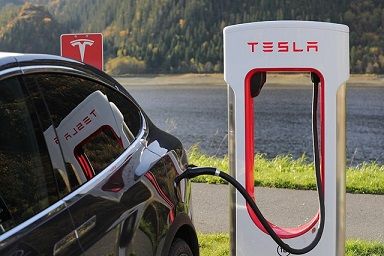According to ambitious government plans, cars running on fossil fuels should be a thing of the past after 2030, by which time there ought to be over a million hybrid or electric cars on Danish roads.
Lower registration fees and cheaper electricity to power these vehicles is part of the plan. A special tax rebate system was introduced for companies and businesses in Denmark to boost competition, allowing them to buy cheap electricity – so-called processtrøm.
An end to rebates
However, due to a special clause in the law governing electricity taxes, from 2020 it will no longer be possible for electricity companies to sell this cheap electricity to owners of electric cars. The tax will rise from 0.4 øre to 88.4 øre per kWh.
READ ALSO: Danes want a lot more political action on electric cars
“I can definitely predict that people’s willingness to buy an electric car won’t be greater when the price of electricity for charging it rises,” Mogens Fosgerau, a professor of transport economics at the University of Copenhagen, told Ingeniøren.
One of Denmark’s biggest suppliers of terminals for electric cars, E.ON, has stated that the price of power for cars across the whole of Denmark will be at least double what it is today.
Government out of pocket
In a written answer to the Skatteudvalget tax committee, the tax minister, Karsten Lauritzen, wrote “the government is aware that the tax breaks will come to an end at the end of this year,” and that he is open to suggestions regarding cheaper electricity for electric car owners.
“But any extension needs to be covered financing-wise,” added the minister.
The latest figures reveal that if a company like E.ON is allowed to continue to sell cheaper electricity, the state will lose 30 million kroner in 2020 in lost revenue.















